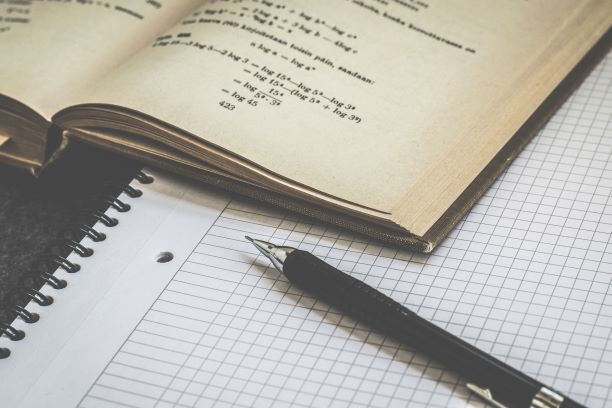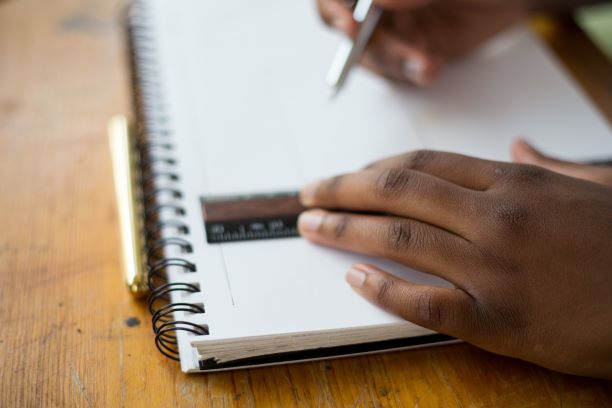Learning Outcomes
SPOL (Strategic Planning Online)
Use your myHancock portal username and password to login to SPOL.
Learning outcomes-based assessment Overview
Training and Workshops
Below you can find training documents, videos, and calendar of upcoming webinars and trainings.
The "How to" provides guidance; the example shows how it might look, and the blank gives a place to input your own.
- Initial Planning (Program planning) "How to"
- Initial Planning (Program planning) Example
- Initial Planning (Program planning) Blank
- Review and Plan (Rubrics and measurements) "How to"
- Review and Plan (Rubrics and measurements) Example
- Review and Plan (Rubrics and measurements) Blank Document
Note: Use of these documents is optional in planning program outcome assessments. The hope is that the help frame the cycle in an accessible manner.
These documents give guidance and example responses to the data. PLO and SLO data can be found in the Institutional Data tab.
Academic Affairs, Students Services, and Administration Assessment Data Dashboards
Course Learning Outcomes (CLO)
The official course outcomes live in CurriQunet on the course outlines of record. Course learning outcomes are the specific knowledge, skills, abilities, and attitudes that students ascertain at the course level. Every course has CLOs. If your outcomes are missing or you have further questions, please contact your LOAC representative listed in the chart below.
Program Learning outcomes (PLO)
PLOs are the Knowledge, skills, abilities and attitudes that a student is expected to achieve by the end (or as a result) of their engagement in a given educational program. A program is a sequence of courses that leads to an objective, degree, or certificate.
Institutional learning outcomes (ILO)
ILOs are the general outcomes that a student who attends and completes a educational goal is expected to have upon leaving the college. There are seven ILOs and they are assessed in a couple of ways; directly and indirectly. The CLO and PLO associations with ILOs are direct measures of the attainment of ILOs. However, ILOs are also indirectly assessed through self-reported attainment surveys completed each academic year. The breadth and depth of experience and proficiency that any individual student may reach in each of these outcomes is, of course, dependent upon the student, their program or course of study, and their length of college attendance.
Communicate effectively using verbal, visual and written language with clarity and purpose in workplace, community and academic contexts.
Examples of when students have demonstrated mastery of this ILO include, but are not limited to
- Reading effectively for many purposes including information gathering, appreciation, and analysis.
- Writing clearly, concisely, and accurately in a variety of contexts and formats and for many audiences.
- Speaking effectively in many different situations, involving diverse people and viewpoints.
- Listening actively and analyzing the substance of others' comments.
- Demonstrating effective visual literacy.
Explore issues through various information sources; evaluate the credibility and significance of both the information and the source to arrive at a reasoned conclusion.
Examples of when students have demonstrated mastery of this ILO include, but are not limited to
- Applying a variety of critical and creative strategies for solving complex problems.
- Generating and exploring questions and arriving at reasoned conclusions.
- Synthesizing ideas and information from various sources and media.
- Evaluating the credibility and significance of sources and material used as support or evidence.
- Identifying assumptions, discerning bias, and analyzing reasoning and methods.
Respectfully interact with individuals of diverse perspectives, beliefs and values being mindful of the limitation of your own cultural framework.
Examples of when students have demonstrated mastery of this ILO include, but are not limited to
- Developing an awareness of one's own cultural framework and how it informs one's perspectives and experiences.
- Recognizing the interdependence of societies that participate in or depend on world economies, political systems, and the planet's finite and fragile resources.
- Acting with sensitivity, respect, and integrity in interactions with individuals and peoples of diverse perspectives, beliefs, and values.
- Developing an awareness of the importance of civic and community participation.
- Information Literacy
Define what information is needed to solve a real-life issue and locate, access, evaluate and manage the information.
Examples of when students have demonstrated mastery of this ILO include, but are not limited to
- Determining the nature and extent of information needed.
- Locating, accessing, managing, and evaluating information from multiple sources.
- Using information ethically and legally.
- Technology Literacy
Proficiency in a technology and the ability to choose the appropriate tools.
Examples of when students have demonstrated mastery of this ILO includes, but is not limited to:
- Using technology and the ability to choose the appropriate tools.
- Selecting and using technology appropriate for the task.
- Understanding the implications of technology in society.
Use mathematical concepts and models to analyze and solve real life issues or problems.
Examples of when students have demonstrated mastery of this ILO include, but are not limited to
- Performing calculations accurately.
- Interpreting mathematical models such as formulas, graphs and tables.
- Applying mathematical concepts to solve problems.
Creating and analyzing mathematical models of real-world situations
Use scientific knowledge and methodologies to assess potential solutions to real-life challenges.
Examples of when students have demonstrated mastery of this ILO include, but are not limited to
- Demonstrating a science-based understanding of the natural world.
- Applying scientific concepts and models to solve complex problems within the natural world.
- Describing and demonstrating the use of the scientific method.
- Demonstrating science-based knowledge in daily life situations.
Take the initiative and responsibility to assess your own actions with regard to physical wellness, learning opportunities, career planning, creative contribution to the community and ethical integrity in the home, workplace and community.
Examples of when students have demonstrated mastery of this ILO include, but are not limited to
- Demonstrating an understanding of ethical issues and the ability to make ethical decisions in complex situations.
- Acquiring knowledge and exercising choices that enhance wellness.
- Developing responsibility for one's own actions and participating actively in pluralistic society.
- Producing and/or responding to artistic or creative expressions.
- Participating effectively in teams, provide leadership, make decisions, and seek consensus when appropriate.
- Valuing and applying lifelong learning skills for personal and professional growth.
- Valuing one's personal role in sustaining the ecosystem.
- Developing career goals and plans to accomplish them.
how to revise learning outcomes
The How to Revise or Change a SLO flow chart addresses how to create new outcomes (all levels: CSLOs, PSLOs and ILOs) and revise current outcomes. The process was shared with Student Learning and Student Services Councils and Academic Senate and approved by College Council in June 2014.
Learning outcomes assessment committees (LOAC)
loac-aa COMMITTEE functions
- Assist departments to develop strategies to implement assessment cycle at the course, program, and institutional levels.
- Oversee the assessment of the institutional learning outcomes (ILOs).
- Monitor and maintain the institutional assessment plan to link the assessment cycle to the college’s planning processes.
- Provide training for faculty and staff on all parts of the assessment cycle.
- Work with program review participants to implement improvement plans related to assessment.
- Develop and recommend assessment cycle timelines.
- Recommend to the Program Review Committee updates to course and program assessment forms and timelines as needed.
LOAC-AA Reports to: Student Learning Council
LOAC-SS Committee Functions
- Assist departments in the development, implementation, and assessment of student learning outcomes at the course and program levels for student services.
- Provide input and feedback in the assessment of institutional learning outcomes (ILOs).
- SLO liaisons will report on SLO assessment progress in their departments.
- Provide and oversee training for faculty and staff on assessment of learning outcomes.
- Work with program review participants to implement objectives related to assessment.
LOAC-AA Members
| VACANT | SLO Coordinator, Academic Affairs | ext. |
| Marc Hamill | Public Safety | ext. 3815 |
| Christopher Straub | Social & Behavioral Sciences | ext. 3524 |
| Mayra Morales/David Hernandez | SLO Co-Coordinator, Student Services | ext. 3336/3707 |
| Ron Lovell | Applied Behavioral Sciences | ext. 3823 |
| Carmen Montanez-Rodriguez | Business | ext. 3794 |
| Tim Webb | Fine Arts | ext. 3351 |
| Julia Raybould-Rodgers | Library | ext. 5474 |
| Scia Maumausolo | Kinesiology, Recreation & Athletics | ext. 3877 |
| Vacant | Industrial Technology | ext. 3488 |
| Julia Raybould-Rodgers | English | ext. 3780 |
| Jennifer Schroeder | Languages & Communication | ext. 3497 |
| Erin Krier | Life & Physical Sciences | ext. 3305 |
| Bethany Conner | Health Sciences | ext. 3545 |
| Karina Novoa | Mathematics & Engineering | ext. 3563 |
| Lynn Becerra-Valencia | Leadership/Personal Development | ext. 3414 |
Invitees/Non-Voting
| Vacant | VPAA Designee | ext. |
| Bob Curry | Vice President, Academic Affairs | ext. 3247 |
| VACANT | Executive Director, Institutional Effectiveness | ext. 3755 |
| Genevieve Siwabessy | Vice President, Student Services | ext. 3659 |
| Vacant | Faculty Designee, Academic Senate | ext. |
| Larray Manalo | AP&P Designee | ext. 3560 |
| Mary Patrick | Dean, Academic Affairs | ext. 3475 |
| Sean Abel | Dean, Academic Affairs | ext. 3537 |
| Thomas Lamica | Dean, Academic Affairs | ext. 3261 |
| Sofia Ramirez-Gelpi | Dean, Academic Affairs | ext. 3325 |
| Mary Dominguez | Dean, Student Services | ext. 3657 |
| Rick Rantz | Dean, Academic Affairs | ext. 5203 |
| Mitch McCann | Associate Dean, Academic Affairs | ext 3800 |
| Erik Arevalo | Institutional Effectiveness Analyst | ext. 3566 |
LOAC-SS Members
| Alex de Jounge | Student Health Services | ext. 3212 |
| VACANT | SLO Coordinator, Academic Affairs | ext. |
| Vania Agama Ramirez | CAN/TRIO | ext. 3489 |
| Heidi Khaykham | Career Job Placement | ext. 3271 |
| Raul Aldama | Financial Aid | ext. 5251 |
| Luis Martinez, Santiago Jimenez | Admissions & Records | ext. 3288, 3329 |
| Mayra Morales | SLO Co-Coordinator | ext. 3641 |
| David Hernandez | SLO Co-Coordinator | ext. 3707 |
| Sarah Easton | Learning Assistance Program | ext. 3670 |
| Carissa Perales | Counseling | ext. 5261 |
| Diana Perez, Rosa Cortes | Cal-SOAP | ext. 3654, 3884 |
| Stephanie Robb, Henry Schroff | Student Activities | ext. 3734, 3236 |
| Dayana Zepeda | Noncredit Counseling | ext. 3743 |
| Ashley Brackett, Maria Arvizu-Rodriguez | University Transfer Center | ext. 3549, 3210 |
| Siboney Guardado | EOPS+ | ext. 3641 |
| Rena Alspaw | Justice Involved Student Support Programs | ext. 3870 |
| Amalia Jimenez Chavez | AIM to Dream Center | ext. 3179 |
| Jannet Rios Leon, Alexzandria Hernandez | Basic Needs Center | ext. 3922, 3927 |
Invitees/Non-Voting
| Genevieve Siwabessy | Vice President, Student Services | ext. 3659 |
| Mary Dominguez | Dean, Student Services | ext. 3657 |
| Yvonne Teniente | Dean, Student Services | ext. 3771 |
| Johnnie Owens | Dean, Student Services | ext. 3273 |
| David Vasquez | Director, Admissions & Records | ext. 3323 |
| Weston Guerra | Interim Director, Learning Assistance Program | ext. 5275 |
| Erik Arevalo | Institutional Effectiveness Analyst | ext. 3566 |





